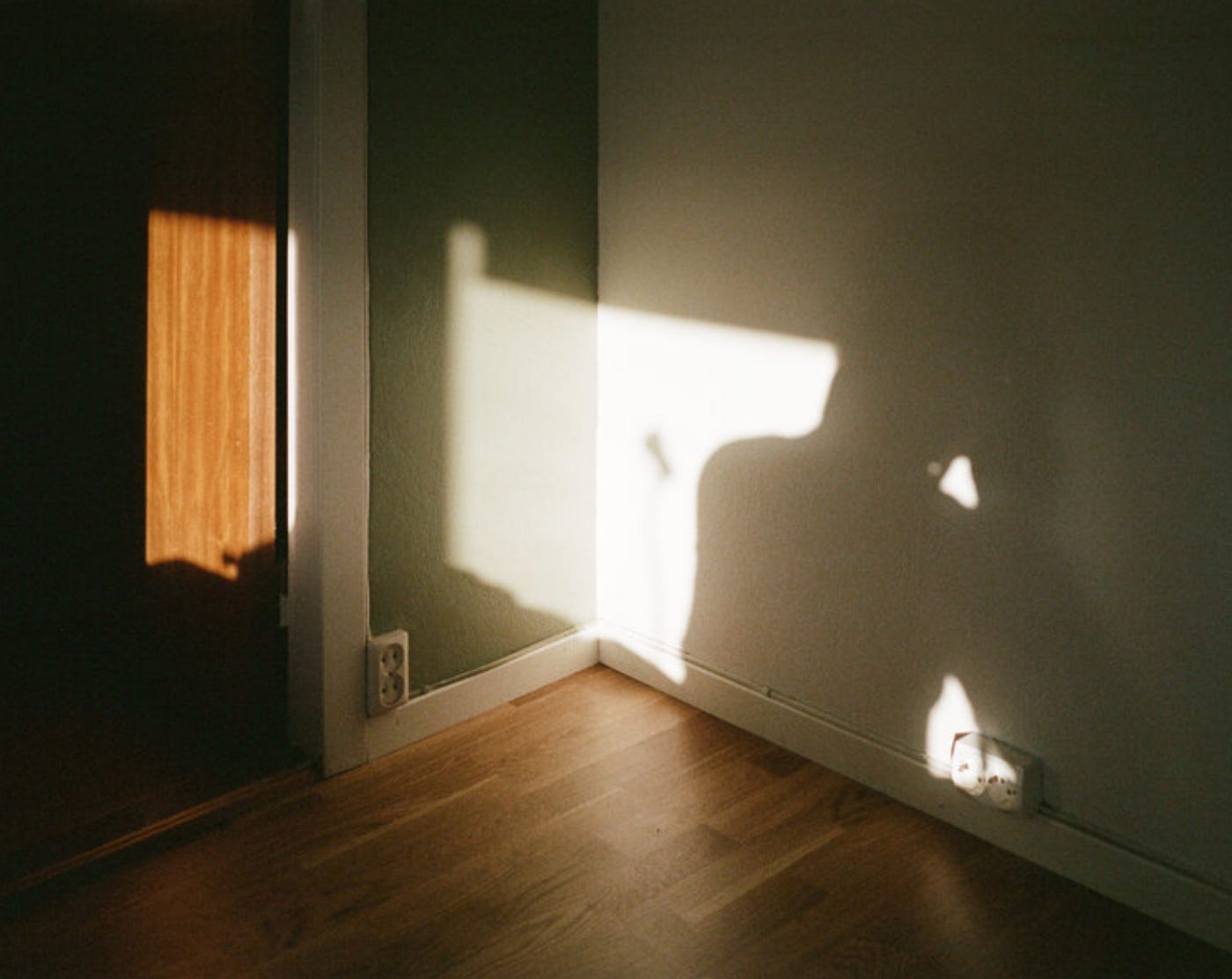No.146
There are residues. In the post office, I put 'Irlande' instead of 'Ireland' on the customs form, and think no, that doesn't look entirely right, before realising I'd written it the French way. After purchasing registered shipping for a parcel containing items that I didn't need to order in the first place we spin up and down in the tiny groceries section a little.
The spirits of the villagers do not seem much dampened by the recent government announcement that we will enter more, more, more weeks of lockdown. It was grey for the first part of the day but now, afternoon well established, the sun moves in and out from behind fast-paced coastal clouds. The light kind, the right kind. A handful of construction workers opposite the village store continue on some kind of paving project, their good moods leaking onto the tarmac. Inside we select a small number of items: a newspaper, a red onion, six bananas, a jar of pesto, and a hexagonal tube of chocolate beans. The last item was only allowable to the conscience because they are within a cardboard tube that will not remain on the face of the Earth for hundreds or thousands of years. We then proceed to walk almost all of the way back before remembering that we had bought them, so drop into our mouths a few of the subtly-coloured sugary things as we reach the last gentle hill to what is temporarily home. The sun has persuaded you to unzip the neck of your fleece, persuaded me to take off my absurdly large scarf and carry it. We are walking slowly, syrup-like, enjoying the air and the feeling of possibility that only seems to be detectable when the wind picks up.
WORK-RELATED NEWS:
A couple of days ago the Japanese broadcasting station NHK World-Japan aired a episode for the program DESIGN TALKS Plus about translations, and within it toured the 21_21 DesignSight Museum in Tokyo which currently features some of my work. It’s voiced over in English, and includes much discussion with the exhibition director, informatics researcher Dominique Chen. There is a small piece about my Lost in Translation illustrations at around minute five, with Dominique speaking beautifully about what untranslatable words (or ‘lexical gaps’) can mean to people, what they can encourage and unfurl. Watching this made me smile inordinately and also made me feel exceedingly far away from everything.
“These words all reveal the emotional lives of native speakers—it’s thought-provoking.” — Dominique Chen
In other news, I had some good-felt-like-a-week-of-breathing-at-once news (to be be disclosed at a shortly-later-date), and I continue on with the (suprisingly) slowest part of lettering—the scanning and neat digitising for a foreign publisher. In case anyone wondered (I definitely did), below is how my name would be written in Russian. And because astonishment can be found in odd places these days, I managed to locate some in reading that four letters were removed from the Russian alphabet in a 1918 language reform. What happens to a language when you take four letters out? Do things disintigrate, or hold themselves together more tightly? Do people stumble? What happens to books?
THIS WEEK I FELL IN LOVE WITH:
Images by the British-Norwegian photographer Alexander Fleming, particularly these ones from British Columbia, Malta, Norway, and Port Talbot (not in this order; they are disordered).
“She had wanted with all her heart at that moment to be a woodlouse with a woodlouse’s responsibilities, a woodlouse’s talents.”
— Ali Smith, The Accidental
The end.












